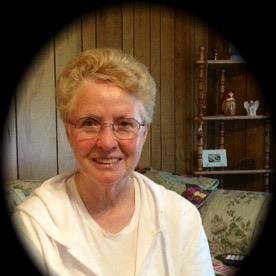
Sr. Anne Marie Raftery has spent many years as a chaplain at federal prisons in Marianna, Fla., Danbury, CT, and now in Sharon, MA.
She has worked with women serving terms of 25 to 40 years. Many of the women are depressed when they first arrive. “They don’t know how they’re going to cope” or how their children will get on in their absence. Many are grandmothers. “They feel such helplessness and guilt when a child is sick,” the chaplain said.“I try to help them hand it over to God.” She urges them to write to their children daily. “A chaplain tries to give meaningful and effective care in a very difficult situation,”.
The ministry of caring for the spiritual and emotional needs of the incarcerated means seeing each person as a whole person -- as parents, grandparents, some with language problems, others with handicaps and disabilities.Religious practice, along with self-help education, substance-abuse training and physical education that increases wellness and self-esteem all contribute to an inmate’s improvement.
Warden Kim Reid, from Danbury, CT. said that “When these four are in place, we find less misbehavior, less recidivism and fewer incidences of violence against other inmates and staff.”
In Warden Reid’s words chaplaincy to the incarcerated is a “shining light.”




